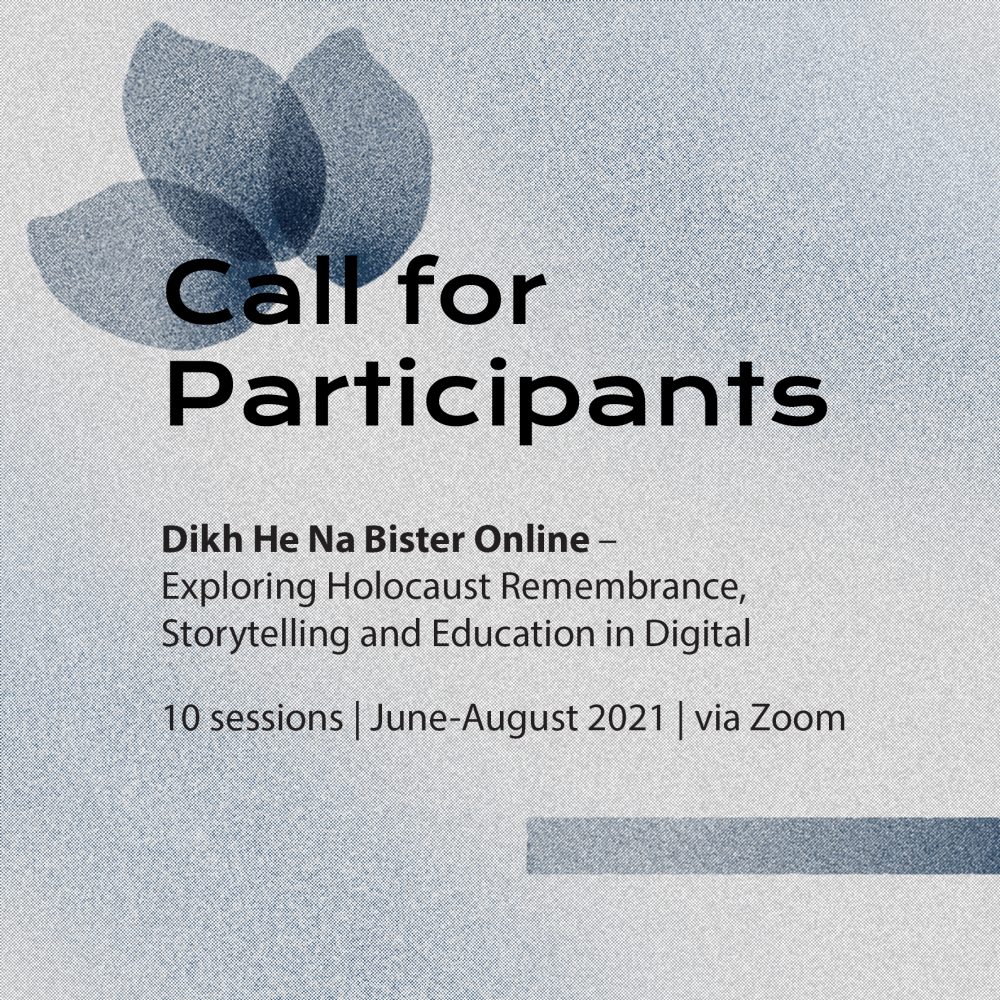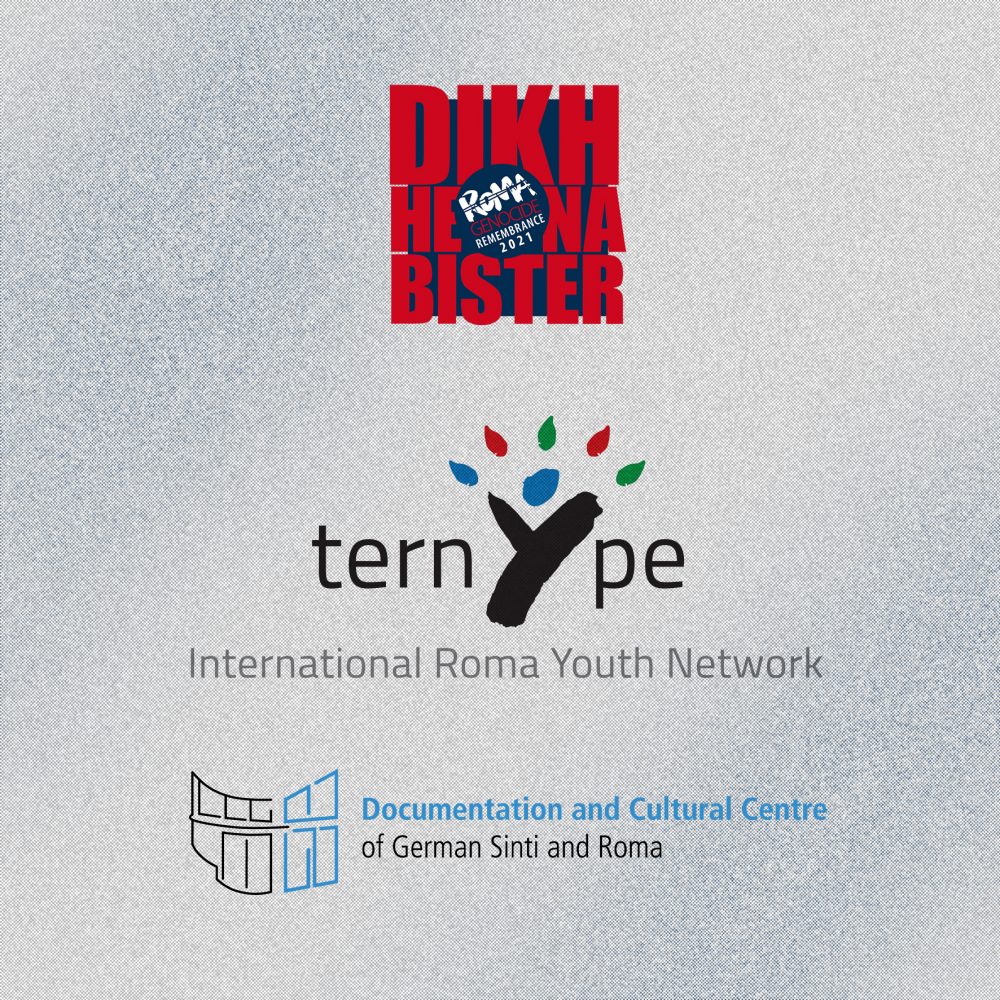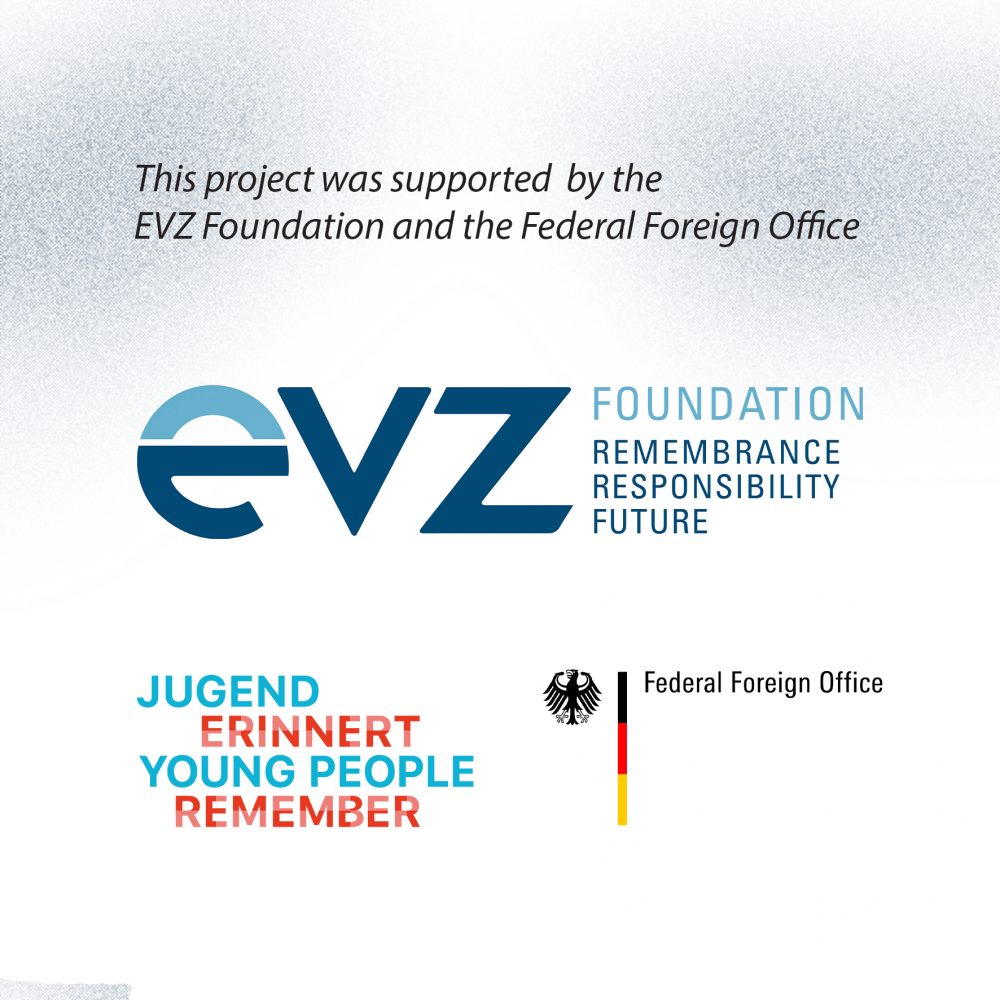
Open Call for Participants
Dikh He Na Bister Online –
Exploring Holocaust Remembrance, Storytelling and Education in Digital Media
10 sessions | June – August 2021 | via Zoom
Every Wednesday (starting 2 June 2021) from 16.00 to 17.30 Central European Time
We invite Roma and non-Roma youth trainers, educators, and activists to participate in an online training course with a series of 10 webinars focusing on digital tools in education and remembrance of the genocide of Sinti and Roma.
During the course you will enrich your understanding of the history of the Holocaust against the Sinti and Roma and learn about innovative ways of remembrance and Holocaust education. Each session will be accompanied by a guest scholar, online media expert or activist from different European countries. Digital tools offer new learning opportunities, but also require us to reflect about educational concepts and approaches. With your newfound knowledge, we will discuss together issues of recognition and visibility and the role of young people in remembrance culture, always making space for your experiences and needs.
Getting familiar with the new methods and approaches will provide you with the necessary tools to take the initiative and actively participate in commemorative and educational work. By the end of the course you will have explored innovative internet-based pedagogical approaches and resources and be well equipped to develop your own material.
Apply here: https://bit.ly/3nPEj6j
Deadline of the Open Call:
25th May 2021 23:59 CET
Preliminary Program of the training course
(Dates of some sessions might still change)
- 2.6.2021 | Introductory meeting
In our first session we would like to introduce all our partners, present the outline and goals of the project. Individual participants will have a chance to introduce and share their previous experiences and future expectations.
- 9.6.2021 | Digital commemoration
Commemorative events are social gatherings focused on specific aspects of history. While online commemorations lack important aspects of in-person gatherings, they offer expanded visibility and new technical capabilities while raising questions about long-standing concepts of commemoration. We will discuss existing digital commemoration practices and what possible inspiration they can provide for our future activities.
- 16.6.2021 | Digital mapping and discovering historical sites online
Maps can offer much more than just the topography of the terrain. They can also comprehensively illustrate different layers of history and society cartographically. In this session we will explore existing virtual maps of historical sites and places of memory, as well as possible creative functions they offer which go beyond the simple sheet of paper.
- 23.6.2021 | Virtual reality
Modern digital tools allow us to recreate 3D models of historical sites and make them accessible from our home. However, they can be much more than just three dimensional replicas. They can also serve as a framework for additional and comprehensive information and a foothold for further educational processes.
- 30.6.2021 | Testimonial archives
Testimonies and personal stories are an inherent part of the Holocaust narrative. There are several major archives and plenty more local archives which treasure the memories and testimonies of survivors. Together we will explore how to to take advantage of the opportunities they offer and how to incorporate them in our commemorative and educational work.
- 7.7.2021 | Exploring digital archives
Too often historical documents that offer the point of view of the perpetrators or bystanders is unquestionally used for educational work. In this session, we will explore the RomArchive, particularly the „Voices of the Victims“ section that focus on the victims‘ perspective.
- 14.7.2021 | Digital storytelling
Personal stories are essential for the narrative of Holocaust. However, the choice of how to communicate with them is also crucial. We will look at some of the formats that can allow us to share these important stories with our target groups or even with the general public in an approachable way.
- 21.7.2021 | Digital games/serious games
Serious games as educational tools are a rapidly growing segment of the education system. They are used in numerous fields and are applicable to all age groups. We will look at the current discussions around serious games in education and ask how they might be useful to us.
- 28.7.2021 | Social media
Social media have become indispensable for communicating with the public in recent years. We will take a look at the opportunities and challenges that social media offer us in remembrance work today, the recommended principles on how to manage them, and what good practices of social media activities exist.
- 11.8.2021 | Outroductory meeting
Last but not least, reflection is essential and in our last session we would like to look back at the previous sessions to have a chance to comment and share the possible ideas and inspirations. How can the discussed topics shape our future initiatives and how do we measure their success? What approaches can be used for your specific work and what questions about them may still need answers?
Key Information
PARTICIPANTS PROFILE
- Participants with a high interest, skills or experiences with digital tools and with educational work in the online and digital environment;
- Sinti and Roma and non-Roma facilitators and educators of non-formal education who already have experience in leading non-formal educational activities;
- Participants with previous experience in working with Roma youth, Holocaust remembrance and human rights education; former participants, leaders and facilitators of DIKH HE NA BISTER are particularly welcome to apply;
CONDITIONS
- Dates/Time: In the beginning a kick-off meeting will take place, then the sessions take place each week and last about 90 minutes. After each session there will be additional non-obligatory 30 minutes for the participatns who will be interested in continuing in the discussion. Webinars will take place every Wednesday at 16:00.
- Attendance: participants are expected to fully participate in the training course
- Webinars: The webinars will take place on Zoom.
- Working language is English
WHAT WE OFFER
- Access to innovative tools: A training course that engages recognized and experienced experts and some of the most innovative approaches of digital remembrance and education.
- Certificate: Participants, who attend at least 80 % of all the sessions and actively contribute to the training course will receive a certificate for their successful participation in the course.
- Follow-up: We aim to strengthen an international partnership that develops the work around digital tools in the future, in particular in the educational work of the Dikh He Na Bister initiative. We also hope to invite the participants to a physical conference once the pandemic allows international travel.
HOW TO APPLY
Deadline of the Open Call: 25th May 2021 23:59 CET
Online application form: You apply via the following form, no further details or documents are required: https://bit.ly/3nPEj6j
Selection process: The preparation team will select participants based on the profile described above, taking care to balance gender, geographical regions, different types of experience and organisations. Within a few days, we will inform the candidates whether their application has been accepted or rejected.
About the DIKH HE NA BISTER Initiative:
DIKH HE NA BISTER (“Look and don’t forget” in Romani) – the Roma Genocide Remembrance Initiative mobilizes each year thousands of young Roma and non-Roma all over Europe on the occasion of the 2 August – the European Roma Holocaust Memorial Day – to advance remembrance, recognition and education about the Roma Genocide. DIKH HE NA BISTER is a space of learning about the past, as well as of reflection about the role of young people in Holocaust remembrance. The initiative creates a dialogue and personal encounter of young people with Holocaust survivors. Their testimonies inspire the participants to address and resist against current challenges of antigypsyism, and other forms of racism in Europe today. DIKH HE NA BISTER symbolizes for many young Roma the power of youth to write their own history. In the last few years, remembrance and recognition of the Roma genocide have become a key element of the Roma youth movement in order to restore dignity and to strengthen the identity building of young Roma. www.2august.eu
CONTACTS:
Project managers:
Marius Lüdicke: marius.luedicke@sintiundroma.de
Peter Leponi: peter.leponi@sintiundroma.de
office: info@2august.eu
Documentation and Cultural Centre of German Sinti and Roma
Emran Elmazi: emran.elmazi@sintiundroma.de
ternYpe – International Roma Youth Network




